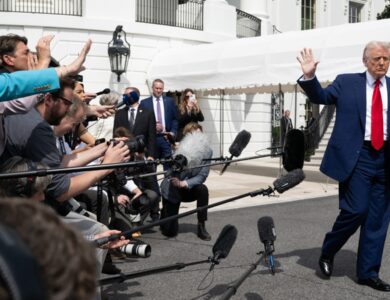Federal Judge Refuses To Dismiss Lawsuit Against Rubio

A federal judge has rejected a motion to dismiss a lawsuit brought by three foreign nationals against U.S. Secretary of State Marco Rubio.
The plaintiffs, who applied for EB-1A visas reserved for individuals with “extraordinary abilities,” argue that the government has unreasonably and unlawfully delayed processing their applications. The ruling allows the case to move forward, requiring the State Department to issue a final decision on the long-pending petitions.
The case, Lyazat Tolymbekova, et al. v. U.S. Secretary of State Marco Rubio, et al., involves three plaintiffs — a Kazakh metallurgist, a Russian project manager, and a Russian makeup artist — whose EB-1A visa applications have been stuck in administrative processing for more than 16 months.
Their applications were placed under § 221(g) of the Immigration and Nationality Act, which permits consular officers to deny visas pending additional information, the Tampa Free Press reported.
The plaintiffs contend that the prolonged delay has imposed severe personal and professional hardships. Lyazat Tolymbekova, for instance, has been separated from her U.S. citizen daughter, missing her college graduation and being unable to support her during a medical crisis.
The other plaintiffs likewise say the uncertainty surrounding their applications has forced them to put both careers and family plans on hold, the outlet added.
In its motion to dismiss, the government argued that the court lacked jurisdiction under the doctrine of consular nonreviewability, which generally shields a consular officer’s final visa decision from judicial scrutiny.
But Magistrate Judge Zia M. Faruqui rejected that argument, noting that a § 221(g) refusal is not a final decision, since the State Department’s own guidance tells applicants their cases will be re-adjudicated once processing is complete. The court stressed that nonreviewability applies only to final determinations.
Faruqui also dismissed the government’s sovereign immunity claim, ruling that the Administrative Procedure Act (APA) waives immunity in cases where plaintiffs seek injunctive relief rather than monetary damages.
The judge concluded that the State Department has a “clear, nondiscretionary duty” to either issue or refuse a visa once an application is properly filed — a duty it has failed to fulfill in this case.
Faruqui cited State Department regulations requiring consular officers to act on visa applications and deliver a final decision. He also invoked the Accardi doctrine, which holds that federal agencies must adhere to their own rules and procedures.
While Faruqui did not rule on whether the delays were “unreasonable,” his decision allows the case to proceed, setting up a fuller legal battle over the plaintiffs’ claims. The ruling leaves open the possibility that the court could ultimately order the government to issue a final decision.
In June following the successful US airstrike on Iran’s nuclear facilities, Rubio defended the action in a fiery interview with CBS News’ Margaret Brennan while correcting several of her claims.
Brennan asked Rubio if the United States had “intelligence that the Supreme Leader had ordered weaponization” of the uranium. Rubio, who also serves as National Security Advisor, responded sharply, asserting that whether or not the Supreme Leader gave such an order was immaterial because the regime was already pursuing a nuclear weapon.
“That’s irrelevant. I see that question being asked in the media all the time. That’s an irrelevant question. They have everything they need to build a weapon,” Rubio said.
WATCH:
MUST WATCH: @SecRubio schools Margaret Brennan on the Iranian regime’s nuclear program.
— Rapid Response 47 (@RapidResponse47) June 22, 2025
“Why do they have 60% enriched uranium? … The only countries in the world that have uranium at 60% are countries that have nuclear weapons because they can quickly make it 90%!” pic.twitter.com/XO8ol5jBIn
The CBS host argued that whether weaponization had been officially ordered was the “key point” in U.S. intelligence assessments. Rubio disagreed, asserting that this was not the case and claimed he understood the subject “better” than Brennan.
““Why would you bury things in a mountain, 300 feet under the ground? Why would they have 60% enriched uranium? You don’t need 60% enriched uranium. The only countries in the world that have uranium at 60% are countries that have nuclear weapons, because it can quickly make it 90,” he said.
“They have all the elements. Why do they have a space program? Is Iran going to go to the moon? No. They’re trying to build an ICBM so they can one day put a warhead on it,” Rubio added.





